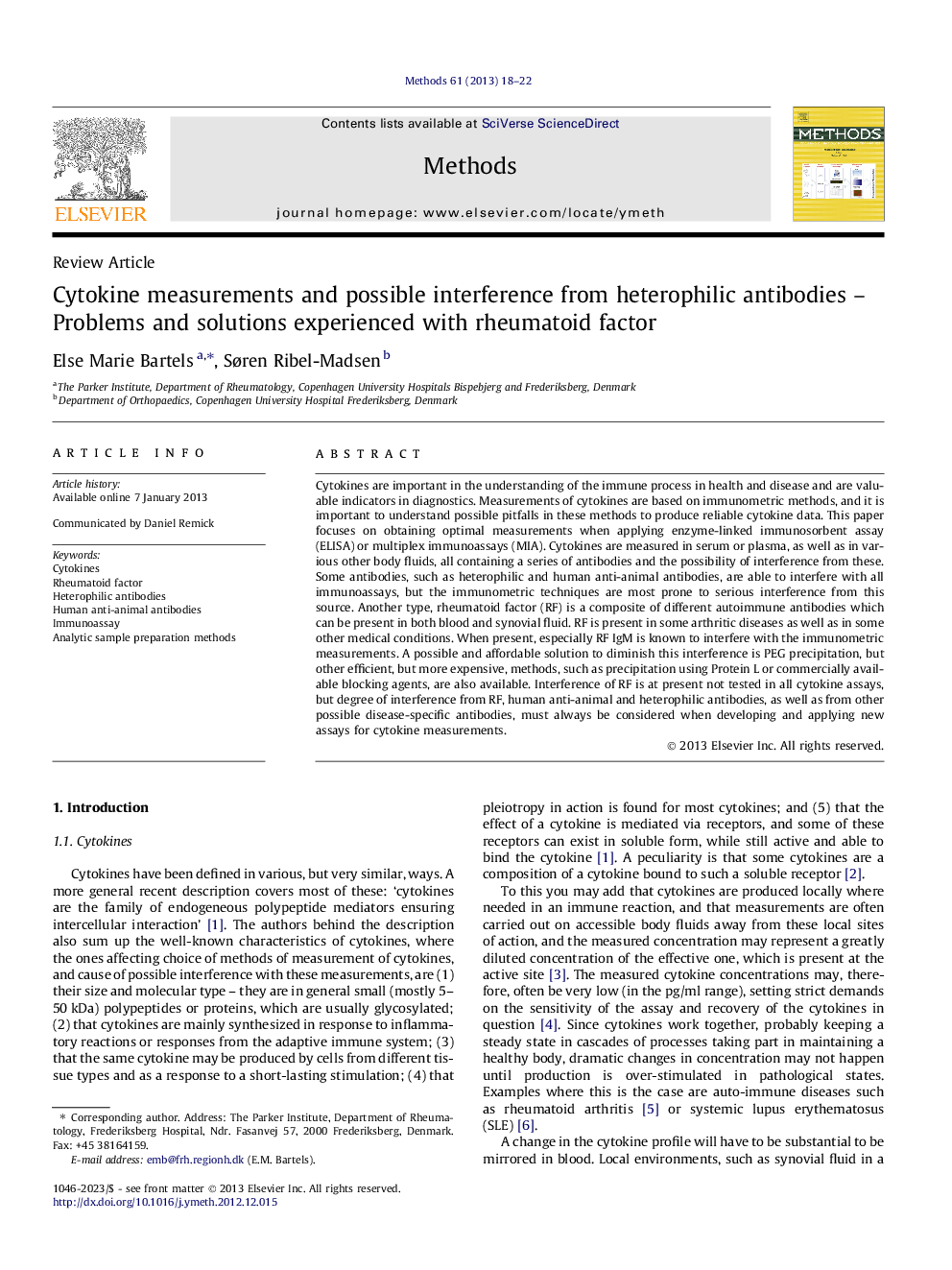| Article ID | Journal | Published Year | Pages | File Type |
|---|---|---|---|---|
| 1993375 | Methods | 2013 | 5 Pages |
Cytokines are important in the understanding of the immune process in health and disease and are valuable indicators in diagnostics. Measurements of cytokines are based on immunometric methods, and it is important to understand possible pitfalls in these methods to produce reliable cytokine data. This paper focuses on obtaining optimal measurements when applying enzyme-linked immunosorbent assay (ELISA) or multiplex immunoassays (MIA). Cytokines are measured in serum or plasma, as well as in various other body fluids, all containing a series of antibodies and the possibility of interference from these. Some antibodies, such as heterophilic and human anti-animal antibodies, are able to interfere with all immunoassays, but the immunometric techniques are most prone to serious interference from this source. Another type, rheumatoid factor (RF) is a composite of different autoimmune antibodies which can be present in both blood and synovial fluid. RF is present in some arthritic diseases as well as in some other medical conditions. When present, especially RF IgM is known to interfere with the immunometric measurements. A possible and affordable solution to diminish this interference is PEG precipitation, but other efficient, but more expensive, methods, such as precipitation using Protein L or commercially available blocking agents, are also available. Interference of RF is at present not tested in all cytokine assays, but degree of interference from RF, human anti-animal and heterophilic antibodies, as well as from other possible disease-specific antibodies, must always be considered when developing and applying new assays for cytokine measurements.
